Ethiopia
African leaders are aiming to offer a global model for tackling the climate crisis through green investments, they said on Monday, after the United States' withdrawal from the Paris climate agreement deflated the fight against climate change.
The continent, which has been buffeted by landslides, floods and droughts this year, is holding its second climate summit in Ethiopia, seeking a common voice ahead of global climate talks in Brazil, at the COP30 summit.
"We are not here to negotiate our survival. We are here to design the world's next climate economy," Ethiopian Prime Minister Abiy Ahmed told the opening ceremony.
Leaders have been positioning the 54-nation continent as ripe for investments in carbon capture, renewable energy, critical minerals for green technology and food production to keep development on track amid the climate crisis.
"If we make the right choices now, Africa can be the first continent to industrialise without destroying its ecosystems," said Abiy, who wants his country to host COP32 in 2027.
He called for a new Africa climate innovation initiative, funded by the continent, bringing together African universities, research institutions, startups, rural communities and inventors to deliver 1,000 solutions to tackle climate challenges by 2030.
Climate finance
Leaders sought more financing at the inaugural summit in Nairobi two years ago to help governments to tackle climate challenges amid fiscal constraints and heavy debt burdens, but the continent is still badly short of funding, receiving just 1 percent of the annual global climate financing, officials say.
African countries, which are among the most vulnerable to the adverse effects of manmade global warming despite being among those least responsible for it, have long demanded that COP meetings yield more funds to help them adapt and launch clean energy projects.
"Climate finance must be fair, significant and predictable," said Mahamoud Ali Youssouf, chair of the African Union Commission.
"The vulnerability of our member countries, caused by climate change, debt burden and the structural inequalities of the international financial architecture, must be redressed through climate justice."
Leaders also expressed concerns about the potential damage from a fraying of the multilateral approach to tackling climate change.
US President Donald Trump's administration pulled out of the landmark Paris agreement on climate change for the second time earlier this year and has also withdrawn from clean energy partnerships with countries such as South Africa.
"Too often, commitments are broken and international solidarity is dismissed as weakness precisely when the scale of the climate crisis demands enhanced cooperation, not less," said Kenyan President William Ruto.
Renewable energy potential in Africa
According to a report by the United Nations released in July, Africa has 60 percent of the world's best solar resources with the continent's deserts and warm climate creating massive potential for solar projects.
Despite this, Africa received just 2 percent of global clean energy investments in 2024.
At a climate summit in January this year, African leaders committed to bringing renewable energy capacity in Africa to 300 gigawatts by 2030. That amount of power equals the output of about 114 large power stations — enough to power a large city or a small country. Meanwhile, the International Renewable Energy Agency projects that 90 percent of Africa's power could be generated from renewables including solar by 2050.
This includes other renewable energy sources besides solar, with countries like South Africa opting for an energy mix that includes hydropower and wind energy.
China's rising solar exports to Africa
Some recent analysis of Chinese export data has shown that exports of solar panels to Africa have increased significantly over the last 12 months.
A report by energy think tank Ember notes that imports from China rose 60 percent in the last year to 15,032 megawatts, with 20 African countries setting a record for imports of solar panels in a 12-month period.
While the surge in solar panels had previously been buoyed by imports by South Africa, which went through years of power blackouts due to a lengthy electricity crisis, imports of solar panels from outside of South Africa tripled in the last 12 months.
Increasingly, independent energy companies are seeing Africa as a market for solar products as they look to fulfill the continent's energy needs.



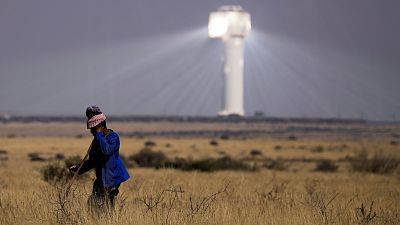

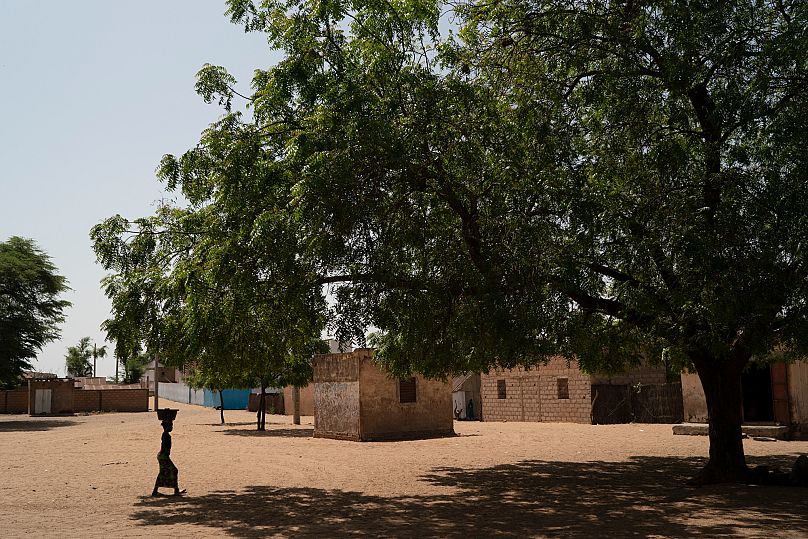
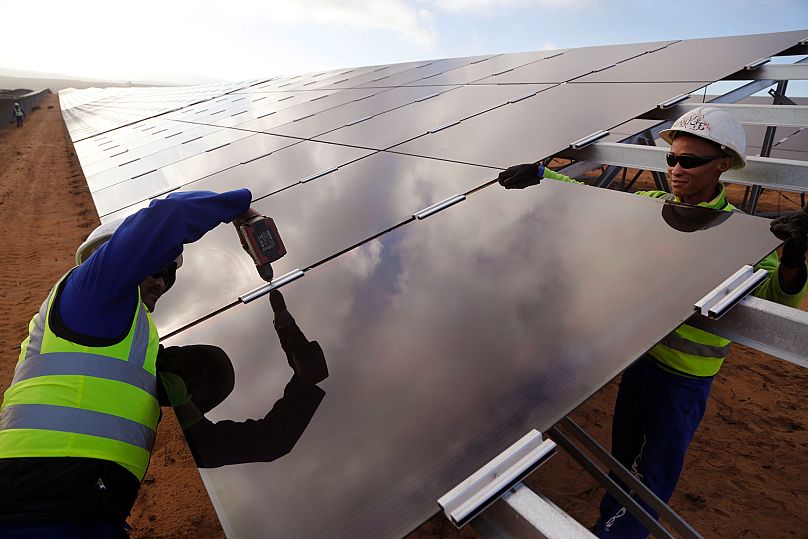
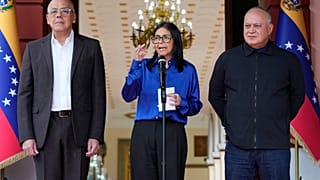



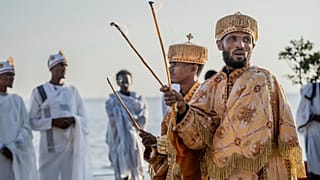
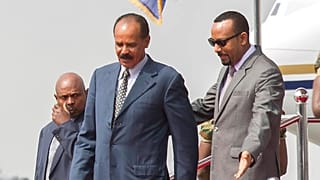

01:13
Ethiopia named as host for 2027 UN Climate Summit
00:58
African leaders urge more renewable energy, finance at climate summit
Go to video
UN Chief Guterres advocates for climate justice and financial reform
01:35
UN says global shift to renewable energy hits positive tipping point
Go to video
From flood to famine: Rainfall chaos fuels Africa’s drought crisis
01:20
UN ocean conference opens in Nice with focus on conservation, climate action